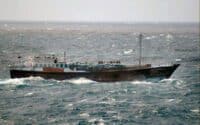Top 24 Strategies for Reducing Oil Consumption

From advanced technologies to proactive maintenance practices, a diverse array of approaches is reshaping the industry’s approach to fuel management. In this article, we explore a comprehensive list of 24 strategies designed to optimize fuel usage, enhance sustainability, and drive cost savings in maritime operations.
* Please send feedback/suggestions to editor @ shipuniverse.com
1. Routine Engine Maintenance
- Overview: Regular maintenance is crucial for ensuring engines operate at peak efficiency. This includes cleaning, timely parts replacement, and regular inspections.
- Benefits: Prevents the buildup of residues that can impair engine performance and increase oil consumption.
2. Upgrade to Fuel-Efficient Engines
- Overview: Investing in newer, more efficient engine models can significantly reduce oil consumption. Modern engines are designed to maximize fuel efficiency and reduce emissions.
- Benefits: Although the initial cost can be high, the long-term savings in fuel costs and the potential for lower emissions make this a worthwhile investment.
3. Optimize Speed Management
- Overview: Operating at the most fuel-efficient speed (often referred to as “Eco-Speed”) can drastically cut fuel usage. Speed adjustments based on current load and water conditions can optimize fuel consumption.
- Benefits: Reduces fuel consumption significantly without compromising on schedule integrity.
4. Implement Advanced Lubrication Management
- Overview: Using advanced lubricants and improving lubrication practices (like condition-based monitoring) can reduce the amount of oil needed for engine operation.
- Benefits: Extends the life of engine components and reduces the frequency and quantity of oil changes needed.
5. Utilize Advanced Propeller Designs
- Overview: Modern propeller designs can significantly enhance propulsion efficiency. Innovations like propeller fins or variable pitch propellers adjust to changing sea conditions and engine loads.
- Benefits: Optimizing propulsion efficiency reduces engine load and cuts down on fuel consumption.
6. Implement Hull Modifications
- Overview: Streamlining a ship’s hull design can decrease water resistance significantly. Measures can include regular cleaning to remove fouling and retrofitting with bulbs or other hydrodynamic enhancing technologies.
- Benefits: A smoother, more streamlined hull reduces drag, which in turn lowers the power (and thus, oil) required to maintain speed.
7. Adopt Air Lubrication Systems
- Overview: Air lubrication systems introduce a layer of air bubbles along the hull’s bottom. This curtain of air reduces resistance between the hull and the water.
- Benefits: The reduction in drag can lead to substantial improvements in fuel efficiency, with some systems showing up to 8% reduction in fuel consumption.
8. Use Energy Recovery Systems
- Overview: Energy recovery systems such as waste heat recovery units capture and reuse energy from a ship’s engine that would otherwise be lost. This can be used to power additional systems or assist in propulsion.
- Benefits: By making use of otherwise wasted energy, these systems decrease the overall energy consumption, leading to lower fuel usage.
9. Optimize Voyage Planning
- Overview: Efficient voyage planning involves using software and weather data to chart the most fuel-efficient routes. Avoiding adverse weather and optimizing routes can significantly reduce fuel usage.
- Benefits: Minimizes unnecessary fuel burn by avoiding areas with heavy weather or high sea resistance, and adjusts speeds according to current conditions.
10. Implement Just-in-Time (JIT) Arrival
- Overview: JIT arrival is a strategy where ships adjust their speed to arrive just in time for berthing slots, avoiding unnecessary idling and waiting times at the port.
- Benefits: Reduces fuel consumption and emissions by ensuring that vessels are not wasting fuel waiting for a berth.
11. Switch to Alternative Fuels
- Overview: Utilizing alternative fuels like LNG (liquefied natural gas), biofuels, or methanol can significantly reduce oil consumption and lower emissions.
- Benefits: These fuels generally burn cleaner than conventional marine fuels, reducing not only oil consumption but also the output of harmful emissions such as sulphur oxides and particulates.
12. Adopt Solar and Wind Power
- Overview: Integrating renewable energy sources such as solar panels and wind propulsion systems can supplement a ship’s power requirements.
- Benefits: Reduces dependency on traditional fuels for auxiliary power needs and supports propulsion, thus conserving fuel and decreasing overall oil consumption.
13. Implement Dynamic Positioning Systems
- Overview: Dynamic positioning systems use computers and propulsion systems to automatically maintain a ship’s position without anchoring, which can optimize engine usage and reduce unnecessary fuel consumption.
- Benefits: Particularly useful for vessels that need to remain in a fixed position, like survey ships or offshore drilling units, reducing the need for manual adjustments and constant engine running.
14. Upgrade to LED Lighting
- Overview: Switching to energy-efficient LED lighting on board reduces the overall energy demand from the ship’s generators, which in turn lowers fuel usage.
- Benefits: LEDs consume a fraction of the energy used by traditional lighting systems and have a longer lifespan, contributing to lower operational costs and reduced oil consumption.
15. Enhance Fuel Treatment Systems
- Overview: Improving the quality of fuel before it enters the engine can significantly boost efficiency. This involves using advanced fuel treatment systems to better filter and condition the fuel.
- Benefits: Cleaner fuel enhances combustion efficiency, reduces engine wear and tear, and minimizes waste, leading to better fuel economy and less oil consumption.
16. Invest in Fleet Performance Management Software
- Overview: This software monitors and analyzes the performance of a fleet over time, providing insights into fuel consumption patterns and identifying areas for improvement.
- Benefits: By understanding and optimizing fleet operations, ship owners can make informed decisions that lead to more efficient fuel use and reduced environmental impact.
17. Regular Staff Training and Awareness Programs
- Overview: Educating crew members about the best practices for fuel-efficient operations can lead to significant reductions in oil consumption.
- Benefits: Well-informed and trained staff are more likely to operate machinery efficiently, adhere to energy-saving protocols, and proactively manage resources.
18. Optimize Boiler Operations
- Overview: Efficient management of onboard boilers, which are used for heating and power generation, can greatly affect overall fuel consumption.
- Benefits: Fine-tuning boiler operations to match actual energy needs reduces excess fuel usage. Techniques include improving burner efficiency and recovering waste heat.
19. Implement Hull Air Lubrication Technology
- Overview: Further building on air lubrication systems, this technology creates a carpet of air bubbles beneath the hull to reduce friction between the hull and seawater.
- Benefits: Reduces drag significantly, which in turn lowers engine load and decreases fuel consumption. Continuous advancements in this technology offer even greater fuel savings.
20. Use of High-Tech Coatings for Hulls
- Overview: Applying advanced coatings to ship hulls can reduce surface resistance, preventing biofouling and reducing the frequency and intensity of hull cleaning.
- Benefits: A cleaner hull has less drag, which directly translates to lower fuel consumption. These coatings also extend the period between dry-dock maintenance.
21. Adopt Predictive Maintenance Techniques
- Overview: Utilize predictive maintenance methods such as condition monitoring and real-time performance analysis to identify and address potential issues before they escalate.
- Benefits: Proactively addressing maintenance needs reduces the risk of engine breakdowns and inefficiencies, optimizing fuel consumption and minimizing downtime.
22. Explore Hybrid Propulsion Systems
- Overview: Hybrid propulsion systems combine traditional fuel-powered engines with electric propulsion or alternative energy sources like batteries or fuel cells.
- Benefits: By integrating multiple power sources, ships can operate more efficiently, switching between modes to minimize fuel consumption and emissions, especially during low-load or harbor operations.
23. Implement Waste Heat Recovery Systems
- Overview: Waste heat recovery systems capture and repurpose excess heat generated during engine operation for various onboard applications, such as heating or electricity generation.
- Benefits: By converting waste heat into usable energy, these systems improve overall engine efficiency and reduce the need for additional fuel consumption.
24. Collaborate with Industry Partners
- Overview: Foster collaborations with industry partners, research institutions, and technology providers to stay updated on the latest advancements and best practices in fuel-saving technologies and strategies.
- Benefits: By pooling resources and expertise, stakeholders can collectively drive innovation and develop tailored solutions to address specific challenges in reducing oil consumption in maritime engines.
As the maritime industry navigates towards a more sustainable future, the adoption of these strategies represents a pivotal step forward. By embracing technological advancements, fostering collaboration, and prioritizing proactive maintenance, shipowners and operators can not only reduce their environmental footprint but also enhance operational efficiency and competitiveness in the global market. Together, these efforts pave the way for a more fuel-efficient, environmentally responsible, and economically viable maritime sector.

Do you have any feedback or additional insights? Please reach out to editor @ shipuniverse.com




